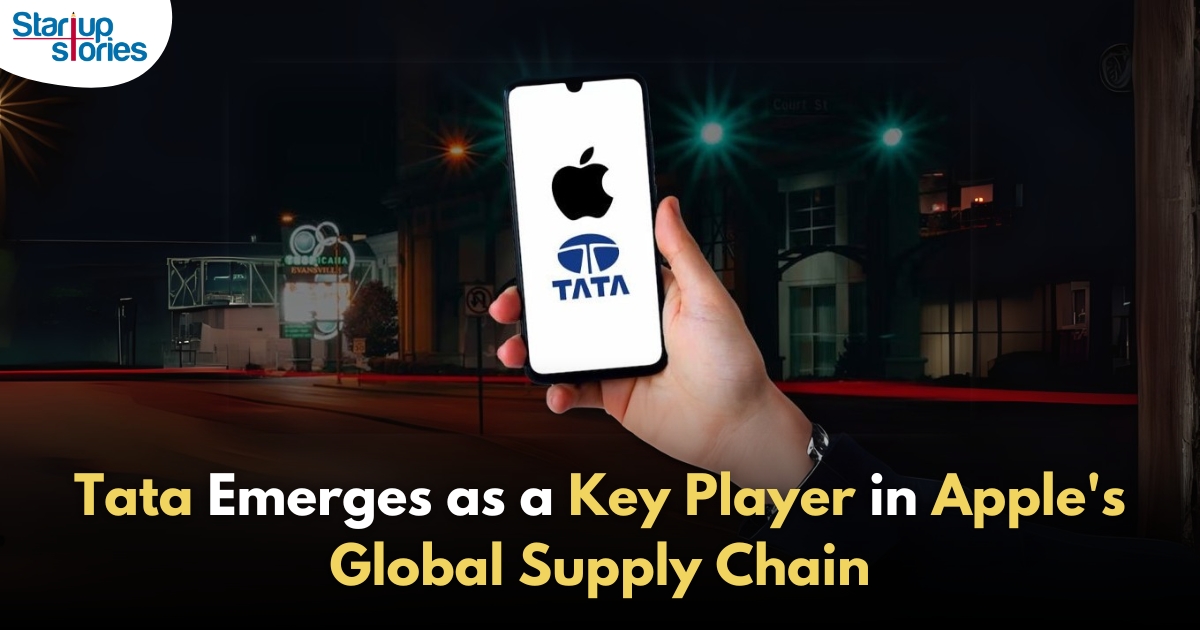India’s tech manufacturing landscape is undergoing a significant transformation, with the Tata Group rapidly establishing itself as a key player in Apple’s global supply chain. The recent acquisition of a majority stake in Pegatron’s iPhone manufacturing facility in Tamil Nadu marks a significant milestone in this journey.
Expanding Production Capabilities
By acquiring Wistron’s facility in 2023 and partnering with Pegatron, Tata Electronics is poised to become one of Apple’s largest suppliers. The company’s ambitious plans include establishing a new facility in Hosur, Tamil Nadu, which will further solidify its position in the global tech manufacturing landscape. This facility is expected to enhance Tata’s production capabilities significantly, enabling it to meet the increasing demand for iPhones both domestically and internationally.
Strategic Acquisitions
The acquisition of Pegatron’s facility, which produces around 5 million iPhones annually and employs approximately 10,000 people, enhances Tata’s role as an Apple supplier within India. This move follows Tata’s earlier acquisition of Wistron’s assembly operations for an estimated $125 million, integrating Wistron’s capabilities into Tata Electronics.
Leveraging India’s Favorable Climate
India’s attractive economic policies, skilled workforce, and improving infrastructure have made it an appealing destination for global tech giants like Apple. Government initiatives like the Production-Linked Incentive (PLI) scheme have accelerated this shift, providing significant financial incentives for local manufacturing. Since its launch, the PLI scheme has driven close to $1.5 billion in investments in the electronics industry in India.
Economic Impact
With Apple’s commitment to diversifying its supply chain away from China, Tata’s growing presence in iPhone production challenges traditional players like Foxconn and contributes to India’s ambition of becoming a global manufacturing hub. The Indian government’s support through favorable policies is crucial for attracting foreign investments and boosting local manufacturing capabilities.
Competing with China
As Apple seeks to diversify its supply chain and reduce reliance on China, India emerges as a strong contender. Tata’s entrance into iPhone assembly makes it the first Indian company to enter Apple’s traditionally China-centered supply chain. Until recently, Apple relied on Foxconn for up to 90% of its iPhone production, primarily concentrated at its Zhengzhou facility, known as “iPhone City.”
Challenges Apple Facing in China
Increasing challenges in China—such as rising labor costs, supply chain disruptions, and geopolitical tensions—have prompted Apple to explore production alternatives. By investing in Indian manufacturing, Apple aims to mitigate risks associated with relying heavily on Chinese production facilities.
A Bright Future for Indian Manufacturing
With increasing investments and a favorable policy environment, India is well-positioned to capitalize on the global shift in manufacturing. Tata’s strategic moves align with this vision, positioning India as a key player in the global tech supply chain. The establishment of advanced manufacturing facilities not only contributes to job creation but also enhances India’s technological capabilities.
Future Prospects
Tata Electronics is reportedly planning to establish another iPhone assembly unit in Hosur with substantial investments aimed at boosting production capacity and meeting Apple’s growing demands. This expansion is expected to further integrate Tata into Apple’s supply ecosystem and enhance its competitive edge.
Conclusion
Tata Group is emerging as a key player in Apple’s supply chain, driving India’s rise as a global manufacturing hub. With strategic acquisitions and partnerships, Tata is expanding its capabilities and contributing significantly to the growth of India’s tech sector. As the country continues to attract investments and foster a favorable business environment, it is well-positioned to become a major player in the global tech manufacturing landscape.


droversointeru
December 31, 2024 at 1:39 pm
I loved as much as you will receive carried out right here. The sketch is tasteful, your authored subject matter stylish. nonetheless, you command get got an impatience over that you wish be delivering the following. unwell unquestionably come more formerly again since exactly the same nearly very often inside case you shield this increase.
droversointeru
April 8, 2025 at 1:45 pm
I like what you guys are up also. Such intelligent work and reporting! Carry on the superb works guys I have incorporated you guys to my blogroll. I think it will improve the value of my website 🙂
Wdbkdajr
May 23, 2025 at 1:55 pm
Explore the ranked best online casinos of 2025. Compare bonuses, game selections, and trustworthiness of top platforms for secure and rewarding gameplaycasino.
ropa interior de mujer
July 10, 2025 at 6:59 pm
for the reason that here every material is quality based
binance
October 13, 2025 at 7:44 am
Thanks for sharing. I read many of your blog posts, cool, your blog is very good.
Mag-sign up sa Binance
November 5, 2025 at 7:21 am
Your article helped me a lot, is there any more related content? Thanks!
MM88
November 7, 2025 at 12:06 pm
Với giao diện mượt mà và ưu đãi hấp dẫn, MM88 là lựa chọn lý tưởng cho các tín đồ giải trí trực tuyến.
J88
November 8, 2025 at 6:08 pm
Đến với J88, bạn sẽ được trải nghiệm dịch vụ cá cược chuyên nghiệp cùng hàng ngàn sự kiện khuyến mãi độc quyền.
站群程序
November 9, 2025 at 11:36 pm
采用高效谷歌站群策略,快速提升网站在搜索引擎中的可见性与权重。谷歌站群
谷歌外推
November 12, 2025 at 5:06 pm
采用高效谷歌外推策略,快速提升网站在搜索引擎中的可见性与权重。谷歌外推
MM88
November 14, 2025 at 2:30 am
Khám phá thế giới giải trí trực tuyến đỉnh cao tại MM88, nơi mang đến những trải nghiệm cá cược thể thao và casino sống động.
GO88
November 25, 2025 at 2:32 am
Tham gia cộng đồng game thủ tại Go88 để trải nghiệm các trò chơi bài, poker phổ biến nhất hiện nay.
iwin
November 28, 2025 at 11:33 pm
iwin – nền tảng game bài đổi thưởng uy tín, nơi bạn có thể thử vận may và tận hưởng nhiều tựa game hấp